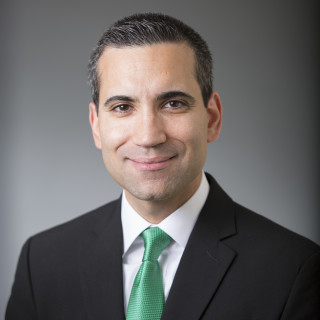
Several late breaking clinical trials in coronary revascularization were featured at the 2018 meeting of the American Heart Association which have important implications for cardiac surgeons and cardiologists. The REGROUP trial randomized 1,150 patients to open versus endoscopic saphenous vein harvest during coronary artery bypass grafting (CABG). For the past several years, controversy had existed over whether graft patency was potentially improved for patients undergoing open versus endoscopic saphenous vein harvest. The primary endpoint of the analysis was major adverse cardiovascular events (MACE). At a median follow-up of 2.8 years, there was no significant difference among patients who underwent open versus endoscopic vein harvest techniques. Importantly, fewer leg wound adverse events were observed among endoscopic vein harvest patients. The study concluded that endoscopic vein harvest should be considered the preferred vein harvest modality.
The second major coronary revascularization trial was a follow-up study of the FREEDOM trial. In 2012, the FREEDOM trial demonstrated that CABG resulted in reduced all-cause mortality, myocardial infarction (MI), and stroke compared to percutaneous coronary intervention (PCI) at a median follow-up of 3.8 years among patients with diabetes and multi-vessel coronary artery disease. In this follow-on trial, the authors demonstrated that at a follow-up time of 8 years, CABG remained superior to PCI in reducing all-cause mortality at 8 years. The study concluded that CABG should be considered the preferred strategy for patients with diabetes and multi-vessel coronary artery disease.
The TiCAB trial examined whether more intense platelet inhibition after CABG could reduce graft failure. The authors randomized patients to aspirin versus ticagrelor with a primary endpoint of cardiovascular death, MI, stroke, or repeat revascularization. At one year, the authors found no difference in the primary endpoint. There was also no difference in any of the events that made up the composite endpoint. The trial did have several limitations including lower than expected events rates and early termination of funding. Nevertheless, the authors concluded that use of ticagrelor monotherapy instead of aspirin after CABG did not significantly influence the rates of major cardiovascular events or bleeding events.
The ISAR TEST 4 trial examined the efficacy and safety of biodegradable polymer-based sirolimus-eluting stents (BP-SES) versus permanent polymer-based everolimus-eluting stents (PP-EES) versus early-generation permanent polymer-based sirolimus-eluting stents (PP-SES). The study randomized 2603 patients the primary endpoint was MACE. The major findings of the analysis were that BP-SES and PP-EES stents showed comparable clinical outcomes out to 10 years. PP-SES, on the other hand, had higher rates of MACE and stent thrombosis.
The final major revascularization trial, Intramyocardial Injection of Mesenchymal Precursor Cells in Left Ventricular Assist Device Recipients: Impact on Myocardial Recovery and Morbidity, was an innovative trial by the NHLBI-sponsored Cardiothoracic Surgical Trials Network that examined whether immunomodulation by mesenchymal precursor cells (MPCs) could augment cardiac recovery after left ventricular assist device (LVAD) placement. The primary endpoint of the trial was the proportion of successful temporary weans from full to minimal LVAD support out of three planned assessments at 2, 4, and 6 months after randomization. A total of 159 LVAD patients were randomized in the study. The authors found no difference in the proportion of successful weans among patients who received MPCs versus those that did not. Importantly, the authors did find that patients who received MPCs had lower rates of gastrointestinal bleeding leading to the potential futures trails in this area.
The American Heart Association 2018 Annual Meeting featured a broad range of clinical trials in coronary revascularization, highlighting the importance of ischemic heart disease with regards to public health in the US. Importantly, the trials also spanned management topics with relevance to both cardiac surgeons and cardiologists ranging from antiplatelet management after CABG to the choice of CABG versus PCI among patients with multi-vessel coronary disease and diabetes.






